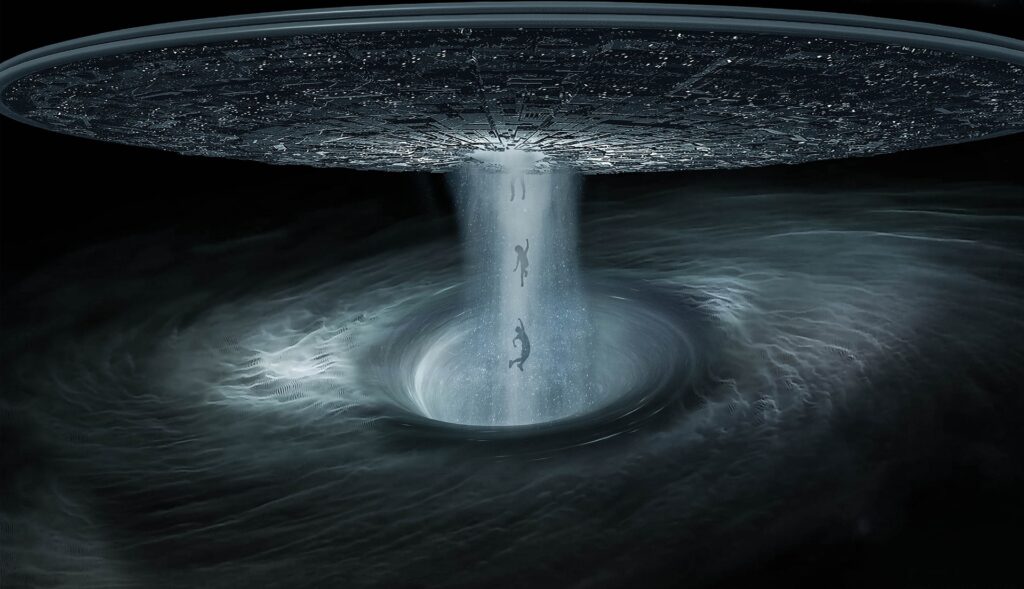Humanity’s journey from its inception to its potential demise is a topic that has intrigued scientists, philosophers, and even filmmakers. The idea that our species might one-day face extinction isn’t just the stuff of science fiction; it’s a possibility that has been seriously contemplated by experts!
As we explore the concept of human extinction, we’ll delve into the origins of humanity, moments when we nearly disappeared, and the factors that could ultimately lead to our end. We’ll also consider the future of Earth after humans and who—or what—might inherit the planet.
When was the first human born?
The origins of humanity trace back millions of years. The first human-like species, known as Homo habilis, appeared around 2.8 million years ago in Africa. However, Homo sapiens, our direct ancestors, emerged approximately 300,000 years ago. These early humans were distinguished by their larger brains and the use of tools, setting them apart from other species.
The exact point when the first true “human” was born is difficult to pinpoint, but it’s generally accepted that modern humans evolved gradually, rather than from a single individual, marking the beginning of what we now call humanity!
When did humans almost go extinct?
Humanity has almost gone extinct three times, facing significant threats that nearly wiped us out. One of the most notable human near-extinction events occurred around 70,000 years ago during the Toba supervolcano eruption. This catastrophe likely triggered a global volcanic winter, drastically reducing the human population to as few as 1,000 individuals.
Another human extinction event was the spread of the Black Death in the 14th century, which killed an estimated one-third of Europe’s population. Despite these threats, humanity has survived, though the question remains: could we be so lucky in the future?
How long will mankind last?
Predicting how long humanity will last is fraught with uncertainty, as it depends on various factors, from environmental changes to technological advancements. Some scientists believe that human extinction causes could arise from nuclear war, pandemics, or even artificial intelligence.

Despite these potential threats, others are more optimistic, suggesting that humans could last for thousands, if not millions, of years, especially if we colonize other planets. However, if we do not adapt or mitigate these threats, the question of how long will humans last on Earth remains open-ended, with no definitive answer in sight!
Will humans ever go extinct?
The possibility of human extinction is real, and many experts believe that it’s not a question of if, but when. Whether due to natural disasters, like asteroid impacts, or possible causes of human extinction stemming from our own actions, such as climate change or nuclear warfare, the future is uncertain.
Some argue that technological advancements could save us, while others caution that these same technologies could be our downfall.
Will humans go extinct soon? Probably not, but over the long term, it’s a possibility that cannot be dismissed!
What will cause human extinction?
Several human extinction causes have been proposed, each with its own potential to end humanity. Climate change is a significant threat, potentially leading to widespread famine, disease, and displacement. Another potential cause is nuclear warfare, which could trigger a human extinction event through catastrophic destruction and nuclear winter.
Additionally, the rise of artificial intelligence could pose existential risks if machines surpass human intelligence and control. Lastly, pandemics, whether natural or bioengineered, could decimate the population, leading to the ultimate collapse of society.
The exact cause is unknown, but the risk is ever-present!
Who will dominate Earth after humans?
If humans were to disappear, the Earth would not remain uninhabited. The planet has experienced human extinction events in the past, and life has always found a way to persist.
In a post-human world, it’s likely that certain species would thrive. Some scientists speculate that highly adaptable animals, such as rats or cockroaches, could become dominant. Others suggest that intelligent octopuses could evolve further, given their problem-solving abilities.

Also, the possibility of aliens taking over the earth can’t be neglected.
While it’s impossible to predict exactly who will dominate, one thing is certain: Earth will continue to be home to life, even after the end of humanity!
If you’re interested in more such blogs, learn why Olympians bite their medals.
FAQ
In 10,000 years, humans may look quite different due to genetic evolution, technological advancements, and environmental changes. Features like larger brains, changes in skin colour, or even integration with technology (like cybernetic enhancements) could occur, leading to a new version of Homo sapiens.
The timeline for human extinction due to climate change is uncertain, but some estimates suggest that if current trends continue, severe impacts could occur within the next few centuries. However, extinction may be averted if significant mitigation efforts are implemented.
The closest humanity has come to extinction was during the Toba supervolcano eruption about 70,000 years ago. This event likely reduced the global human population to a few thousand individuals, a bottleneck that almost wiped out our species.
The future human population will depend on various factors, including resource availability, technological advancements, and climate change. Projections vary widely, with some predicting a stable population of 10 billion, while others suggest significant declines due to possible future crises.
In 100 trillion years, the universe will be vastly different, with stars burned out and galaxies dispersed. Earth, if it still exists, will be uninhabitable. Humanity, if it survives, would have had to find new ways to exist beyond our planet or even our galaxy.
Earth is expected to remain habitable for another 1 to 2 billion years. However, human civilization may face challenges much sooner due to environmental degradation, resource depletion, and other factors.
The world, as we know it, will eventually end, whether due to natural cosmic events like the sun’s expansion or human-made disasters. However, the planet itself will continue to exist long after humanity has vanished, evolving in ways we cannot currently predict.

